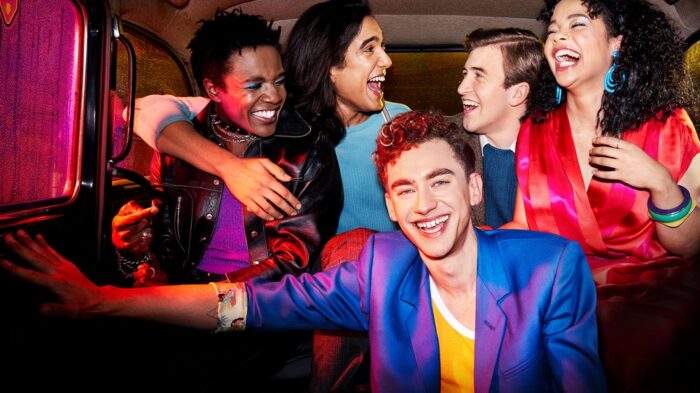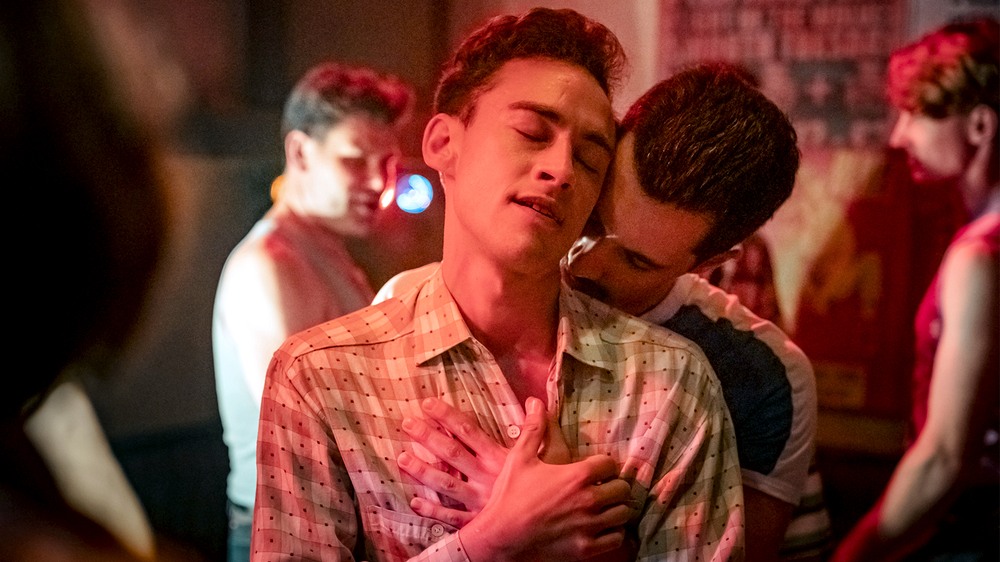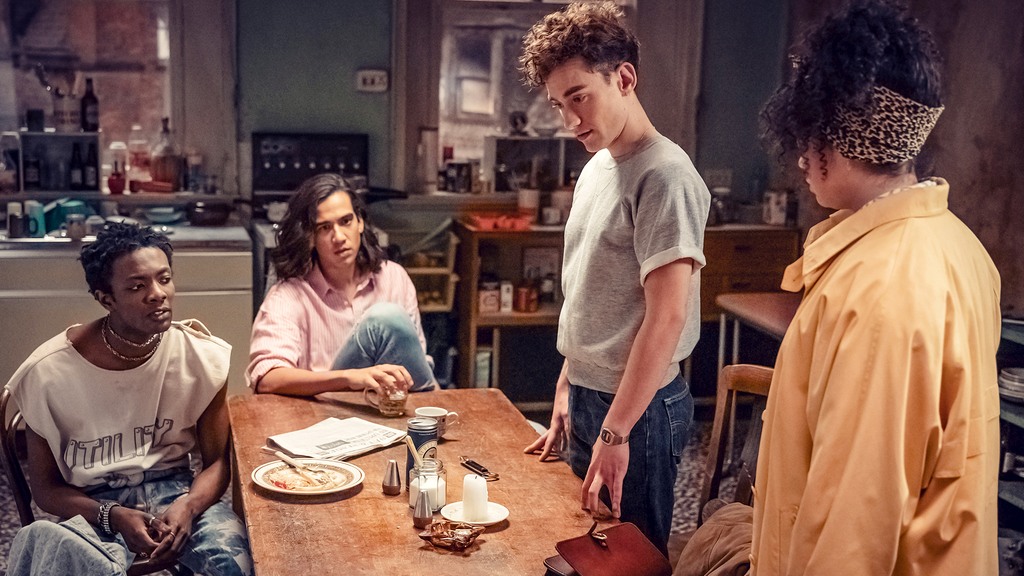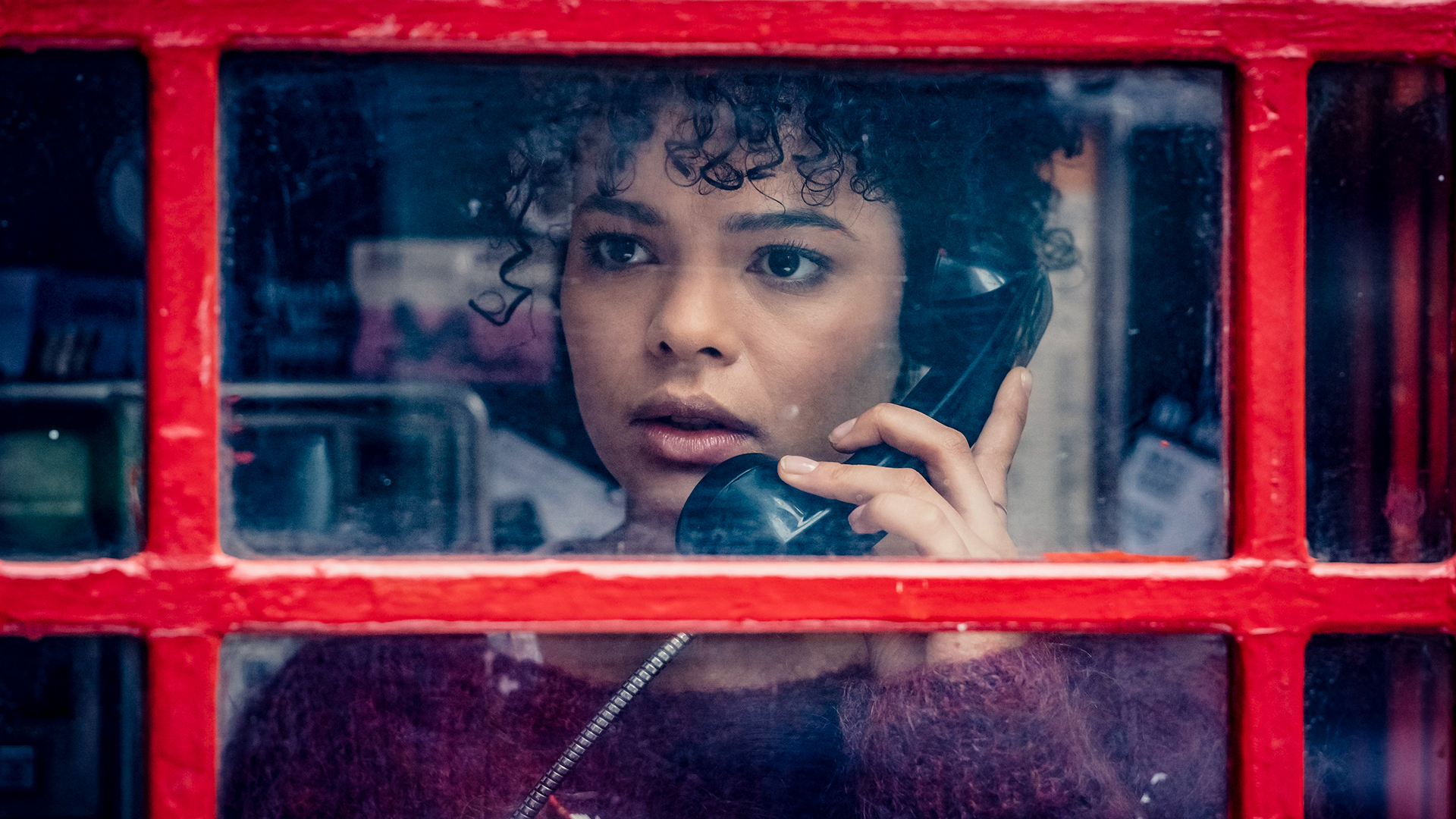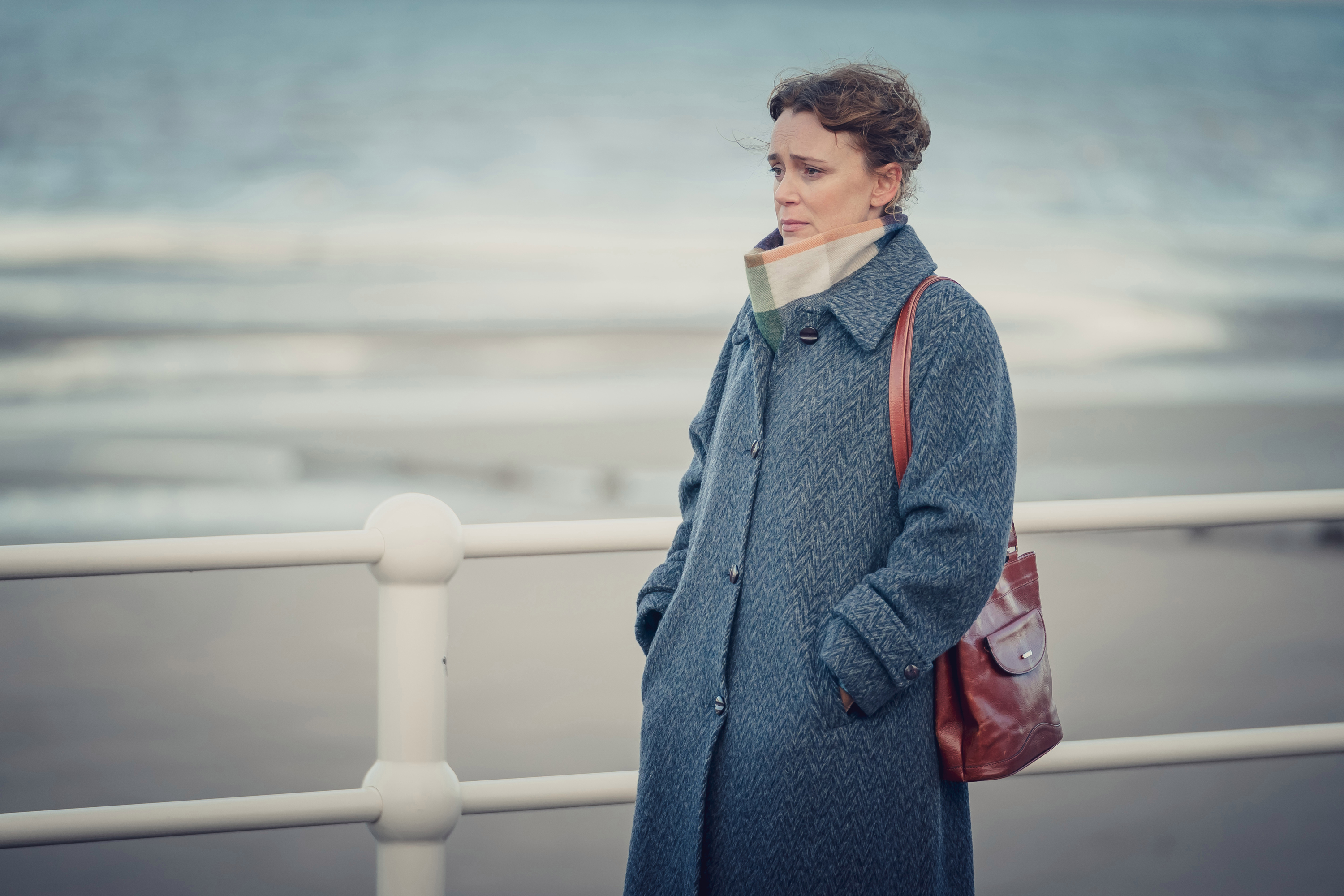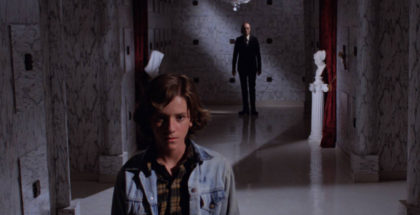It’s a Sin: The 20 best moments
Ian Winterton | On 07, Feb 2021
Warning: This contains spoilers. Not caught up with It’s a Sin? Read our spoiler-free review here.
When I look back upon my life
It’s always with a sense of shame
I’ve always been the one to blame
For everything I long to do
No matter when or where or who
Has one thing in common, too
It’s a, it’s a, it’s a, it’s a sin.
Since Channel 4 released It’s a Sin as box set last month, Russell T Davies’ magnum opus has fast become the channel’s highest rated drama, at the time of writing clocking up 6.5 million views and rising. While it’s still being aired weekly, many viewers have opted to consume the show’s five episodes in one go – and then, shaking and sobbing, they’ve re-watched it all over again.
An astonishing piece of work, It’s A Sin tells the story of the Aids pandemic from the point of view of a group of young gay men – Ritchie, Roscoe, Colin, Ash – and their female friend, Jill (Lydia West in a career-making performance), who, as the men she loves succumb to this terrible disease, dedicates her life to Aids and HIV activism.
It sounds an unlikely subject for a hit TV drama – and it is unquestionably grim and heart-wrenchingly sad in places – but, as Davies is breaking our hearts, or making us share his anger at the indifference wider society felt towards the pandemic, he takes us to peaks of joy, too; more than anything, his anthem for doomed youth is not about death, but about life – and living it to the full.
With millions of people coming together online to share their love for this remarkable drama, one aspect that’s come to the fore is how It’s A Sin contains innumerable perfect moments, some big, others small and fleeting, each someone’s personal favourite sliver of the show. Below we’ve assembled a list of 20 such moments. La!
1. “There’s some things your mother didn’t pack…”
Ritchie Tozer (Oliver Alexander), 18, is leaving the Isle of Wight for the first time. Bidding him farewell on the ferry, Ritchie’s dad (Shaun Dooley) makes sure his son is prepared for what he thinks awaits him in London: girls. Throughout It’s A Sin, Davies gets across multiple shades of meaning in a few lines. As Ritchie’s dad hands his son a pack of condoms, he’s revealed as clueless, not suspecting in a million years that his son is gay, but this is also his blokey way of caring. “I don’t want you getting some girl in trouble,” he says, before adding a laddish coda: “But make sure they all get used. Your mother’s right, it is different on the mainland.” And then, hinting at the regret that manifests itself later in ugly remarks to Jill, he grunts: “It’s more fun.” We’re with Ritchie, cringing inwardly at this out-of-touch old man. But Davies never lets anyone off the hook and he expertly subverts our pro-Ritchie prejudice as the young man, alone and free for the first time in his life, throws the packet of condoms in the sea. After all, he’s gay and it’s 1981 – why would he need them? And, dread presentiment rippling through their bones, the audience knows, if they didn’t already, that they’re in the hands of a master screenwriter.
2. Roscoe leaves home
Just as much as he can be subtle and complex, Davies loves huge demonstrative moments. There’s nothing particularly clever about Roscoe (Omari Douglas) dressing up as his authentic self – make-up, halter top and sparkly skirt – but it’s a glorious two-finger salute to his homophobic family, who are preparing to send him back to Nigeria to be “cured”. “I’m going now,” he declares, “so thank you very much and if you need to forward any mail I’ll be staying at 23 Piss Off Avenue, London W Fuck.” And that, dear audience, is Roscoe.
3. Three Empty Hospital Beds
As we get to know our young protagonists, the Aids pandemic is beginning to cast its shadow – though none of them know it yet. It’s Colin’s colleague and mentor, Henry, who’s first taken by the mysterious disease, before it’s even known as Grid (Gay Related Immune Deficiency) and several years before it’s called Aids. Through Henry (played brilliantly by Neil Patrick Harris), Colin is shown a future template for life as a non-scene gay man in London. “It’s like the official history of the world says that men like us have always been hidden away in secret,” says Henry, “but then there’s the real world where we’ve been living, together, for all this time.” Tragically, Henry also represents Colin’s actual future. As Ritchie’s pouring out his hopes and dreams to his agent – “I just want to be happy!” – Episode 1 ends with Henry’s body taken away by nurses in full PPE, leaving just the isolation ward empty, save for three beds – waiting, metaphorically, to be filled.
4. Seven Brothers
In Episode 2, it’s 1983 and the disease begins to claim people close to the flatmates. Gloria (David Carlyle), the bus conductor down from Scotland, is Jill’s first direct experience of Aids, and the crucible in which her life as a carer and activist is forged. The facts around Aids are still fuzzy at this point, not least because the media is barely reporting it – except to refer to it as a “gay plague” – and, even as he’s dying from the disease, Gloria has little to no clue as to what whispers he’s heard are real or not. “Someone told me this story,” he says. “There was a production of Seven Brides for Seven Brothers in Chicago. And all seven brothers are dead.” This line is, in some ways, the most important in the whole series. As Davies revealed in a recent interview with the Writers’ Guild of Great Britain, it was hearing this in real life that ultimately led to It’s A Sin. “I heard that around about in 1981,” he recounted. “It’s a kind of macabre joke. It’s like a black comedy joke. I don’t know if it’s true but that set me on a path of thinking: imagine a group of people and they all die. Imagine that.”
5. The Pink Mug
The pink mug that gives the Pink Palace its name becomes the object of Jill’s paranoia as, seeing Gloria drinking his tea from it, she becomes obsessed with cleaning it free of any imagined virus – and ultimately smashes it to pieces. As a a symbol of both the ignorance surrounding Aids, and the effect of the disease on the residents of the Pink Palace, it’s potent and powerful.
6. The bonfire
As Henry’s death and the three waiting beds ended Episode 1, so Episode 3’s closing scenes overshadow the fun of life in the Pink Palace with Gloria’s parents burning all their dead son’s possessions on a bonfire. In the WGGB interview, Davies confessed this scene, taken from real life, was a late addition to the script. “Paul Burston was a big activist who I should have consulted right at the beginning. Why I didn’t, I don’t know – just laziness. He runs the Polari Salon of gay literature and poetry – a brilliant man – and he had that oft repeated story about people who died of Aids, their belongings being burned by their parents.” It’s hard to imagine It’s A Sin without this scene, Gloria’s weeping parents sat out in their garden as their son’s entire life – including, heartbreakingly, a photo of him as a baby – are burnt, to eradicate shame as much as the virus.
7. Colin’s keys
“I love my keys,” says Colin (Callum Scott Howells), the others affectionately mocking him for letting his boss at the copy shop take advantage of his good nature. But Colin doesn’t care. He’s sweet and kind and innocent and, above all, an optimist. It’s a tiny moment, but cements Colin’s place in the hearts of the audience. And then, of course, he’s the first of the Pink Palace to die.
8. “But is Colin going to be all right?”
Davies’ first thought was to have a variety of parents, with the boys out to some of them. Then he thought back to 1981 and how none of his friends were out to their parents. Aside from Roscoe’s disapproving parents, the nearest Davies gives us to an “out” character is Colin who, ironically, rarely talks about his sexuality. But his mum (Andria Doherty) knows, without ever quite saying it out loud. That is clear from this single line, uttered after the authorities have explained why they’re keeping him prisoner. “Aids is associated with the homosexual male population,” the doctor intones. And Colin’s mum couldn’t care less – she just wants to know if her boy is going to all right.
9. Lizbeth Farooqi
Though a work of fiction, a few real-life figures are woven into It’s A Sin. One such is Lizbeth Farooqi, a queer Muslim lawyer who battled endlessly in the courts on behalf of gay men discriminated against during the Aids crisis. In the TV series, she’s played to steely perfection by Seyan Sarvan, as she tears the hospital authorities holding Colin captive a new one. But she’s not really interested in punishing them in court. “We can help,” she says. “Because this disease is terrifying and no wonder you’re scared… We can help your staff, I promise you. So we could go to court all guns blazing, or we could just step back together, we could pause and step back and think and put Colin first.”
10. Uncle Bill
When the gang make a stand at the funeral of a friend, his family keen to erase the truth of his life and his death, they cause a huge outpouring of anger. In a quietly brilliant scene, the impotence and pettiness of this rage is summed up in the tragicomic sight of Uncle Bill (Morrison Thomas) hobbling slowly over from the distance, just to hollowly bellow: “You bastards! You little fuckers!”
11. “Something wrong with your skin.”
Ritchie getting a part on a Doctor Who adventure wasn’t just so Davies could include a scene with his beloved Daleks, but as a tribute to real-life actor Dursley McLinden, who starred in 1988’s Remembrance of the Daleks and died, aged 30, seven years later from Aids. He also grew up on a British island – the Isle of Man, rather than Ritchie’s Isle of Wight. Here, as throughout the series, a fun moment is overshadowed by the dark reality of Aids. The Director of Photography, lighting Ritchie between takes, notices that the light isn’t acting as it should on the actor’s face. “Something wrong with your skin,” he mutters – and we know, for sure, that Ritchie is developing Aids.
12. Margaret Thatcher’s coffee
In the WGGB interview Davies admitted that the subplot involving Roscoe and Stephen Fry’s self-hating gay Tory MP was his answer to Alan Hollinghurst’s Line of Beauty, in which a secretly gay character dances with Margaret Thatcher. “It’s the most beautiful scene in the world,” he says, “and so I thought I’ll go and write it as wild farce!” Out goes graceful dancing, and in comes Roscoe’s own response to Section 28 – urinating in the Iron Lady’s coffee.
13. Ballet in the headlights
But Davies does create his own beautiful moment of dance, as Ritchie – having spent the night confessing his love to childhood friend, Martin (Jonny Green), itself a wonderful sequence – shows off his ballet skills, lit up in the angelic white light of the car headlights.
14. Ritchie to the rescue
A huge, stirring moment this, as Ritchie – having expressed his fear that being known to be gay would ruin his acting career – returns from the Isle of White just in time to leap on the back of the copper trying to beat up Jill. We’ve just had a similar moment from Roscoe, fresh from peeing in Thatcher’s beverage, and so this lands perfectly. It’s the end of the penultimate episode and all of the surviving characters are united at last.
15. In the back of the police van
But Episode 4 has one last heart-breaking moment to give us. Locked up with his friends – and, in an inspired comedic touch, a total stranger – Ritchie finally lets them know he’s got the virus. Davies, in a prime example of why they pay him the big writing bucks, delivers this information without it being said. “No, you can’t touch me, ‘cause I’m bleeding,” is all Ritchie needs to say, before defiantly declaring: “I’m gonna live!”
16. Ritchie’s mother learns the truth
He’s not, of course, and Episode 5 takes us right into the darkest heart of the story. Ritchie’s in hospital when his parents make a surprise visit. According to Davies this happened in real life: parents learning that their son was gay, had Aids and was dying all in the same moment. It’s brilliantly written, matched by the performances of the cast, particularly the mighty Keeley Hawes. As Ritchie’s mum, her frantic five-minute lurching through the first four stages of grief – we never quite see her reach acceptance – is one of the most powerful sequences in TV history. And at the heart of it, for many of us, the utter fury with which Mrs Tozer slaps the hospital counter as she shrieks: “His doctor is Doctor Sullivan, now you get him! Get him! Get him!”
17. The money from Ritchie’s voiceover work
It’s testament to the pull of Russell T Davies that It’s A Sin is peppered with great actors in small parts. One such is Tracey Ann Oberman, known to Doctor Who fans from the Davies era as the head of Torchwood, here playing Ritchie’s agent, Carol. In her final scene, Oberman turns in a nuanced performance. “I’ve done my sums,” she says, hiding behind her ballsy agent persona, “and I’ve worked out that Richie did that voiceover for that Japanese cartoon. I guess that sort of thing is repeated for at least five or six years, which amounts to £700, minus my 10 per cent.” It’s only when she walks out, unseen by anyone else, that we see the truth – as she hinted at earlier, she’s lost a lot of her young, gay clients and, we see, she’s quietly mourned each one.
18. A little mouse with clogs on
As Colin was held captive by the authorities, so Ritchie is now a prisoner of his parents. Their attempts to cope and express love to their son are touching – his dad reading him Watership Down – but also deeply disturbing. While forbidding Ritchie contact with the friends he loves, his mother plays him the oppressively chirpy song about a little mouse with clogs on: A Windmill in Old Amsterdam. The word order, she explains, is altered to rhyme with Amsterdam. “How lucky we am,” she whispers. “How lucky we am.”
19. The seafront
According to Davies, the whole drama was always working towards three terrible words: “He died yesterday.” As a piece of writing, it’s a masterful combination of structure, characterisation and dialogue. Davies has set us up for Jill to have a last-minute tearful farewell, with her waiting patiently at the hotel close to the Tozer house. But, as Ritchie’s mum does to Jill, so Davies robs the audience, expertly pulling the rug from under us. Despite Carol’s warning not to go home, Ritchie did, and he never left. It’s a gut punch that we’re still recovering from.
20. Marcus
As a coda to Ritchie’s death, we see Jill continuing her work, just as the woman she’s based on – Jill Nalder, who appears as Jill’s mother – did in real life. There are millions of Ritchies out there, and some of them have no one with them at the end. So Jill, not able to be there at Ritchie’s final bow, makes sure she’s there to hold the hand of a dying stranger, Marcus. “I might just sit here,” she says. “If you don’t mind.”


